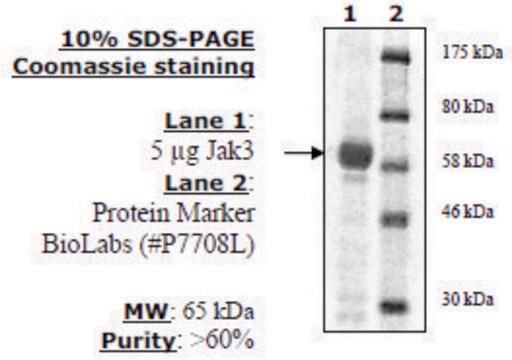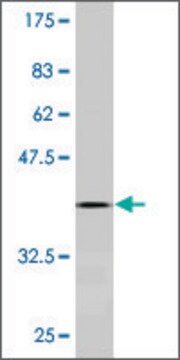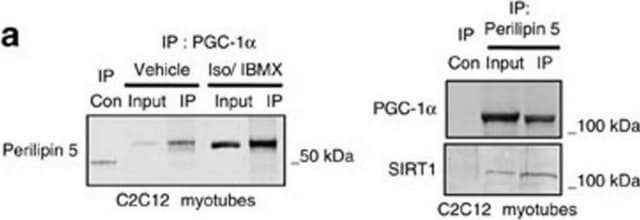T6442
Anti-TRPC6 antibody produced in rabbit
affinity isolated antibody, lyophilized powder
Synonym(s):
Anti-Transient receptor potential cation channel, subfamily C, member 6 antibody produced in rabbit
About This Item
Recommended Products
biological source
rabbit
Quality Level
conjugate
unconjugated
antibody form
affinity isolated antibody
antibody product type
primary antibodies
clone
polyclonal
form
lyophilized powder
species reactivity
mouse, rat
technique(s)
immunohistochemistry: suitable using mouse brain sections
western blot: 1:200-1:400 using rat brain or lung lysates
UniProt accession no.
storage temp.
−20°C
target post-translational modification
unmodified
Gene Information
human ... TRPC6(7225)
mouse ... Trpc6(22068)
rat ... Trpc6(89823)
Immunogen
Physical form
Disclaimer
Not finding the right product?
Try our Product Selector Tool.
Storage Class Code
11 - Combustible Solids
WGK
WGK 2
Flash Point(F)
Not applicable
Flash Point(C)
Not applicable
Certificates of Analysis (COA)
Search for Certificates of Analysis (COA) by entering the products Lot/Batch Number. Lot and Batch Numbers can be found on a product’s label following the words ‘Lot’ or ‘Batch’.
Already Own This Product?
Find documentation for the products that you have recently purchased in the Document Library.
Our team of scientists has experience in all areas of research including Life Science, Material Science, Chemical Synthesis, Chromatography, Analytical and many others.
Contact Technical Service








